Employment: Cracking down on the freelance economy
Not all gig workers approve of the changes
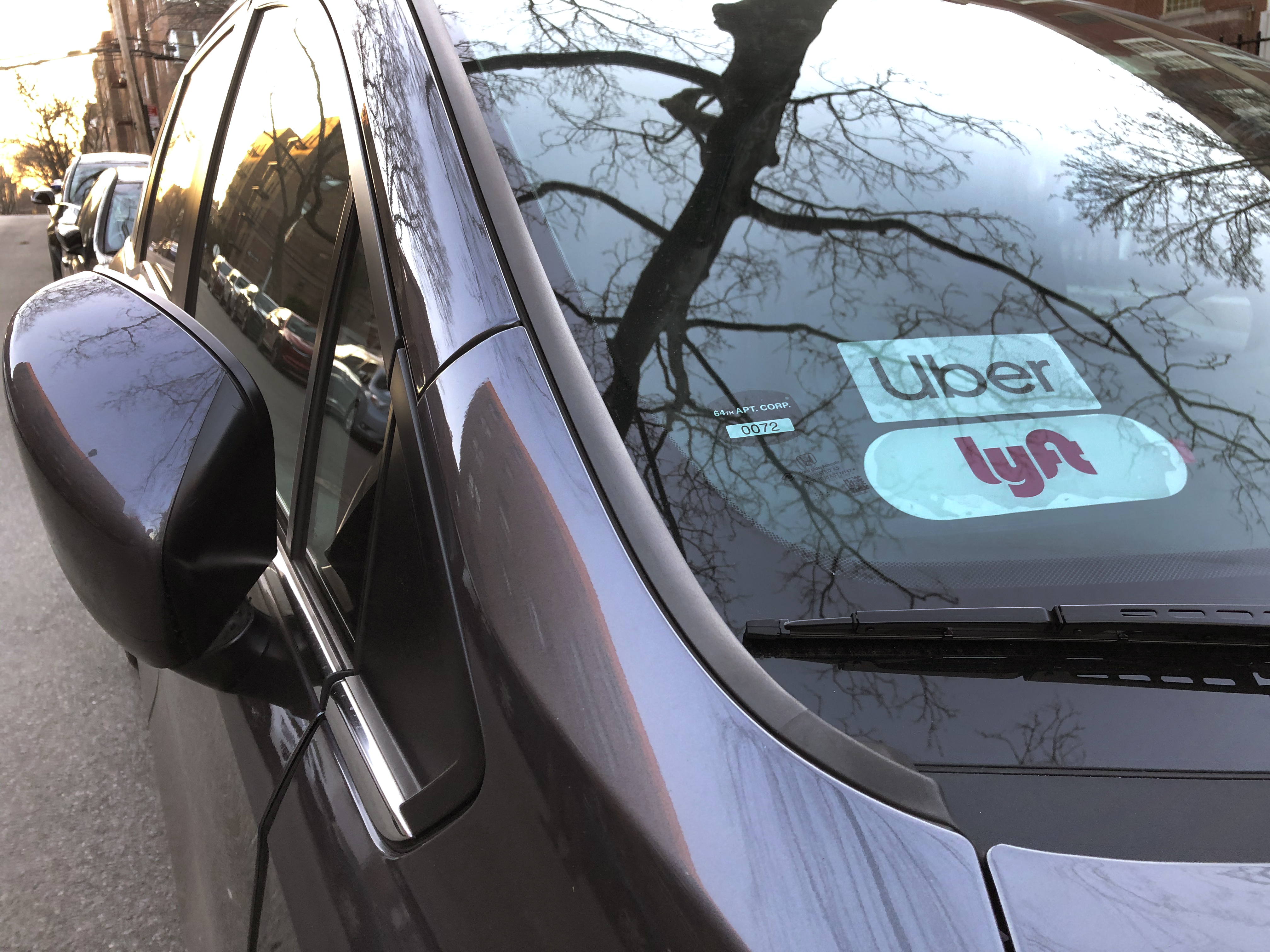
A free daily email with the biggest news stories of the day – and the best features from TheWeek.com
You are now subscribed
Your newsletter sign-up was successful
The smartest insight and analysis, from all perspectives, rounded up from around the web:
The Biden administration wants to rewrite the rules of the gig economy, said Noah Rothman at MSNBC. "Labor activists have long demanded" that the federal government force companies to classify more of their staff as employees rather than independent contractors. Now the Labor Department is giving them their wish, proposing new guidelines this month that would replace more lenient Trump-era policies. Not surprisingly, shares of Uber and Lyft, two symbols of the gig economy, sank on the news. But proposed rules have implications that go far beyond ride-sharing services. The administration is following in the footsteps of California, which passed a wide-ranging freelance law that transformed the jobs of "independent writers, graphic designers, photographers, journalists, and content producers" — most of whom "didn't seem to appreciate the reform" passed in their behalf.
All the proposed changes would simply "bring Labor Department policy back in line" with where it was before the Trump years, said Timothy Noah in The New Republic. The rules at issue were derived from two 1947 Supreme Court cases "that established an 'economic reality' test typically based on six questions," including whether the worker's services are integral to the business and how much control the business maintains over the worker. The Trump administration significantly winnowed that precedent and made it "much easier to classify a worker as an independent contractor" — letting companies like Uber and FedEx keep taking advantage of their workers.
The Week
Escape your echo chamber. Get the facts behind the news, plus analysis from multiple perspectives.

Sign up for The Week's Free Newsletters
From our morning news briefing to a weekly Good News Newsletter, get the best of The Week delivered directly to your inbox.
From our morning news briefing to a weekly Good News Newsletter, get the best of The Week delivered directly to your inbox.
Well, I'm an Instacart and Uber driver, and I don't feel taken advantage of, said Roman Juela in Fortune. I'm also a construction worker. During the pandemic, I realized I needed extra income, "but getting a second full-time job was out of the question." The Labor Department proposal would "make independent work harder, undercutting the freedom and flexibility I enjoy today." Changes in how workers are classified will have "unintended" impacts, said Morgan Meaker in Wired. Ironically, Uber and Lyft, the initial targets of California's 2019 law, ended up winning an exemption via a statewide ballot initiative. But the legislation has "reshaped a raft of other industries, from yoga studios to theater productions and trucking." Consider strippers. While the law guaranteed exotic dancers a minimum wage, club owners restructured their businesses to "take larger cuts of the money earned through private dances" — which make up most of dancers' income.
It's understandable that organized labor and liberal lawmakers want to "lump as many workers into the 'employee' bucket as possible," said Christian Britschgi in Reason, "to guarantee more people the overtime pay and benefits that come with that designation." But those efforts have often been rebuffed by gig workers themselves, "who object to the added regulation and rigidity." A more expansive federal definition of an employee is likely to encourage more restrictions at the state level too. As gig economy arrangements keep growing around the country, this fight is only beginning.
This article was first published in the latest issue of The Week magazine. If you want to read more like it, you can try six risk-free issues of the magazine here.
A free daily email with the biggest news stories of the day – and the best features from TheWeek.com
-
 How the FCC’s ‘equal time’ rule works
How the FCC’s ‘equal time’ rule worksIn the Spotlight The law is at the heart of the Colbert-CBS conflict
-
 What is the endgame in the DHS shutdown?
What is the endgame in the DHS shutdown?Today’s Big Question Democrats want to rein in ICE’s immigration crackdown
-
 ‘Poor time management isn’t just an inconvenience’
‘Poor time management isn’t just an inconvenience’Instant Opinion Opinion, comment and editorials of the day
-
 Ski town strikers fight rising cost of living
Ski town strikers fight rising cost of livingThe Explainer Telluride is the latest ski resort experiencing a patroller strike
-
 What will the US economy look like in 2026?
What will the US economy look like in 2026?Today’s Big Question Wall Street is bullish, but uncertain
-
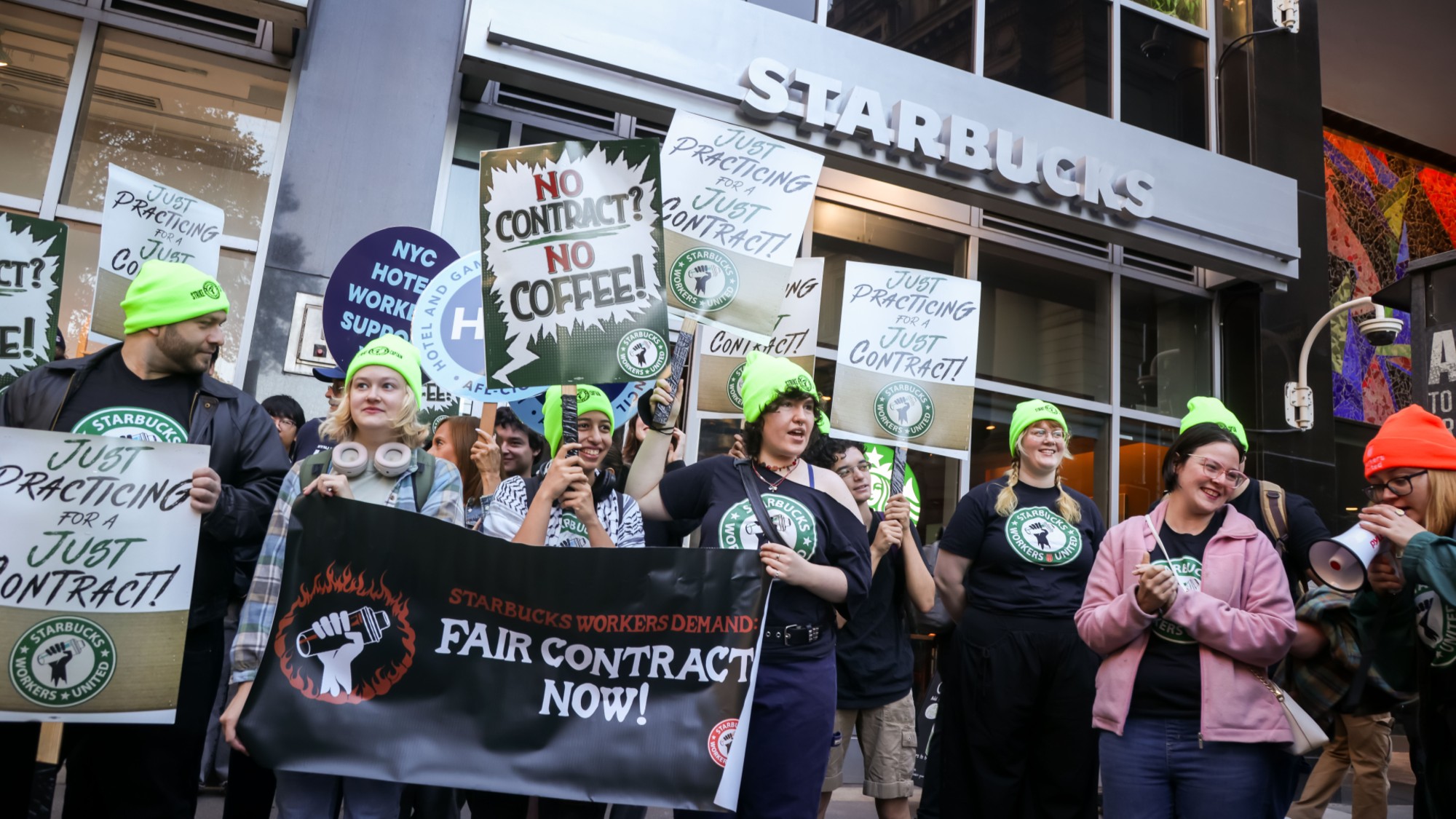 Starbucks workers are planning their ‘biggest strike’ ever
Starbucks workers are planning their ‘biggest strike’ everThe Explainer The union said 92% of its members voted to strike
-
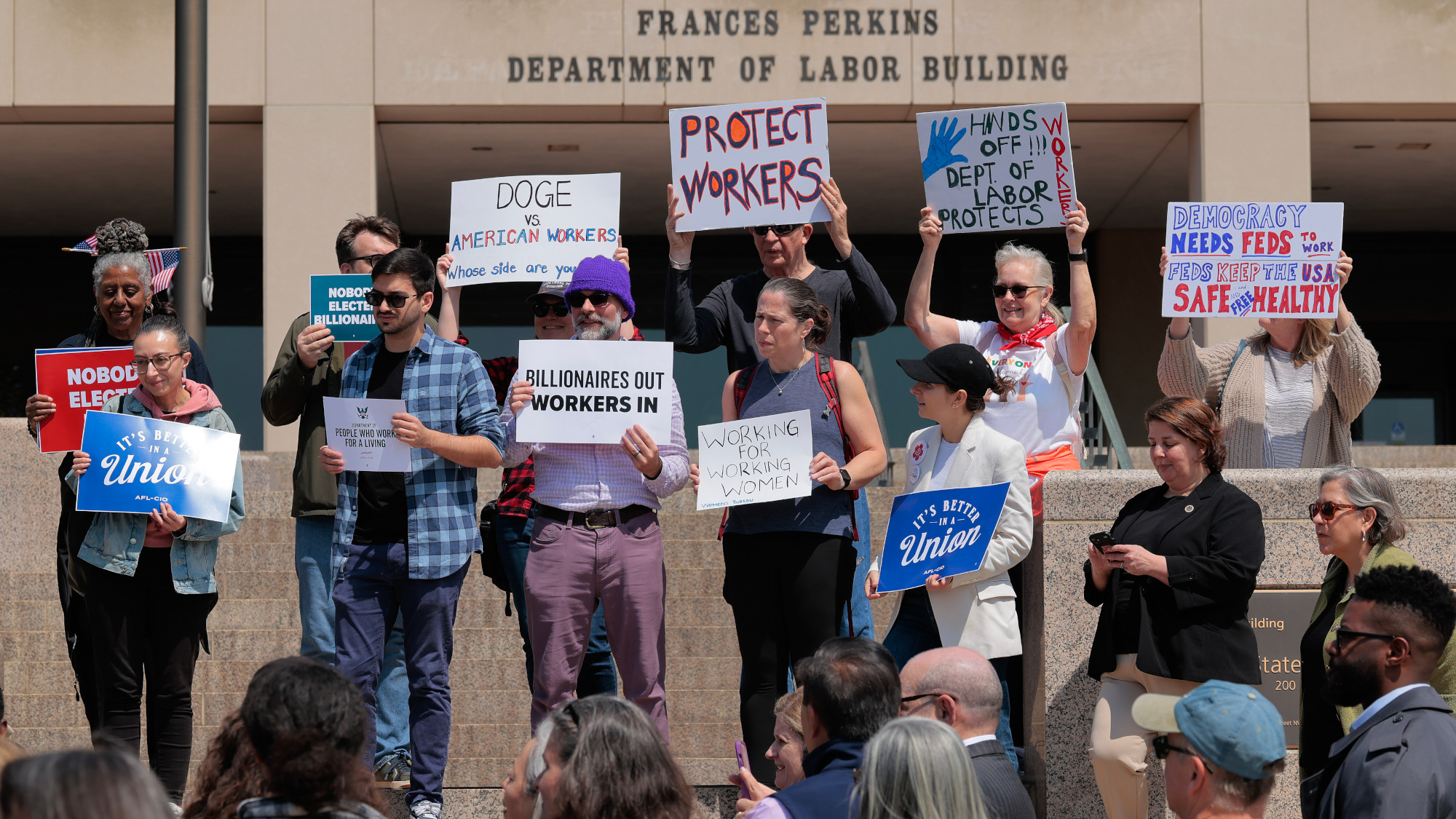 Labor: Federal unions struggle to survive Trump
Labor: Federal unions struggle to survive TrumpFeature Trump moves to strip union rights from federal workers
-
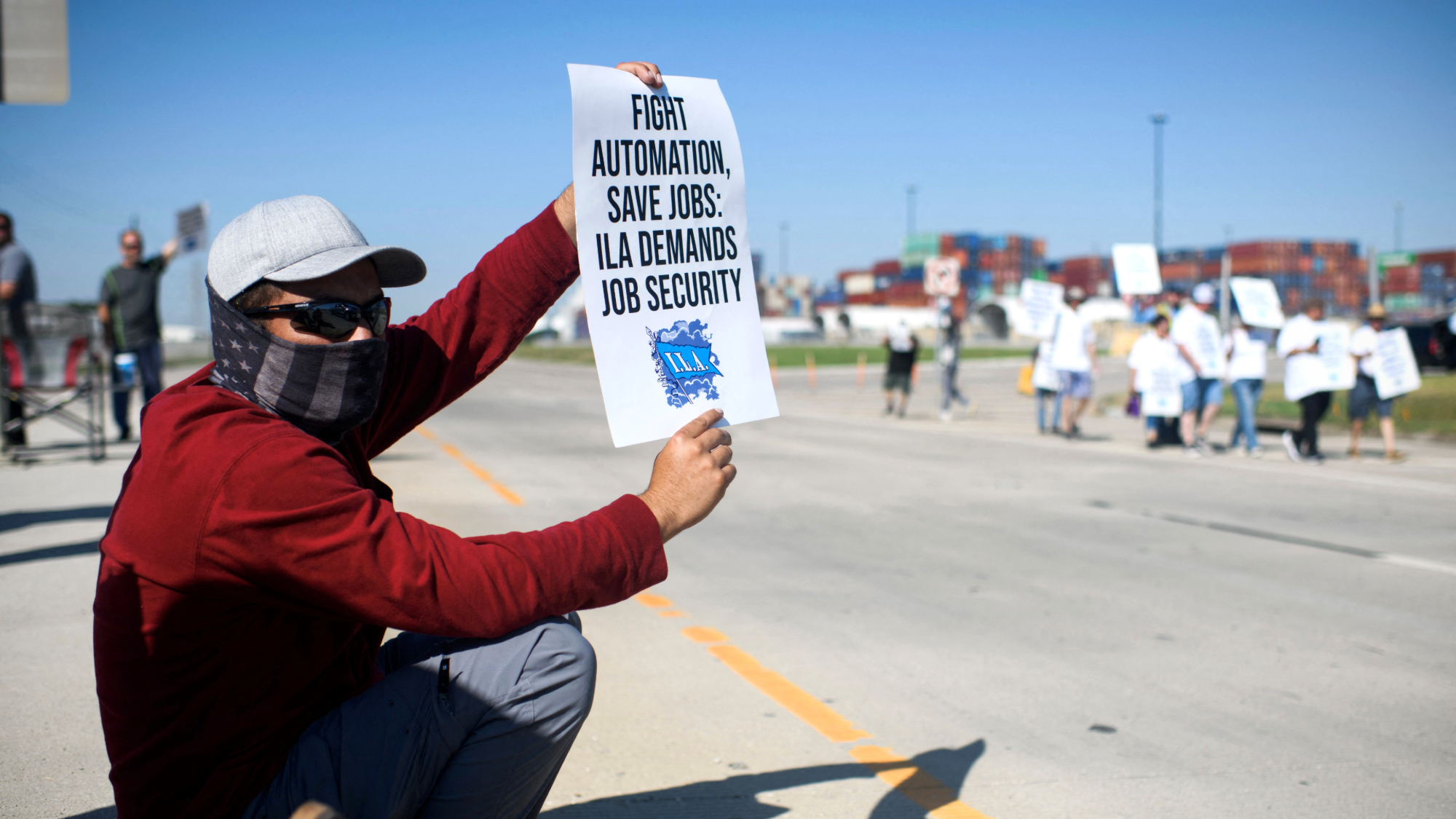 US port strike averted with tentative labor deal
US port strike averted with tentative labor dealSpeed Read The strike could have shut down major ports from Texas to Maine
-
 Boeing machinists reject deal, continue strike
Boeing machinists reject deal, continue strikeSpeed Read The rejection came the same day Boeing reported a $6.2 billion quarterly loss
-
 The pros and cons of globalization
The pros and cons of globalizationPros and Cons Globalization can promote economic prosperity but also be exploitative
-
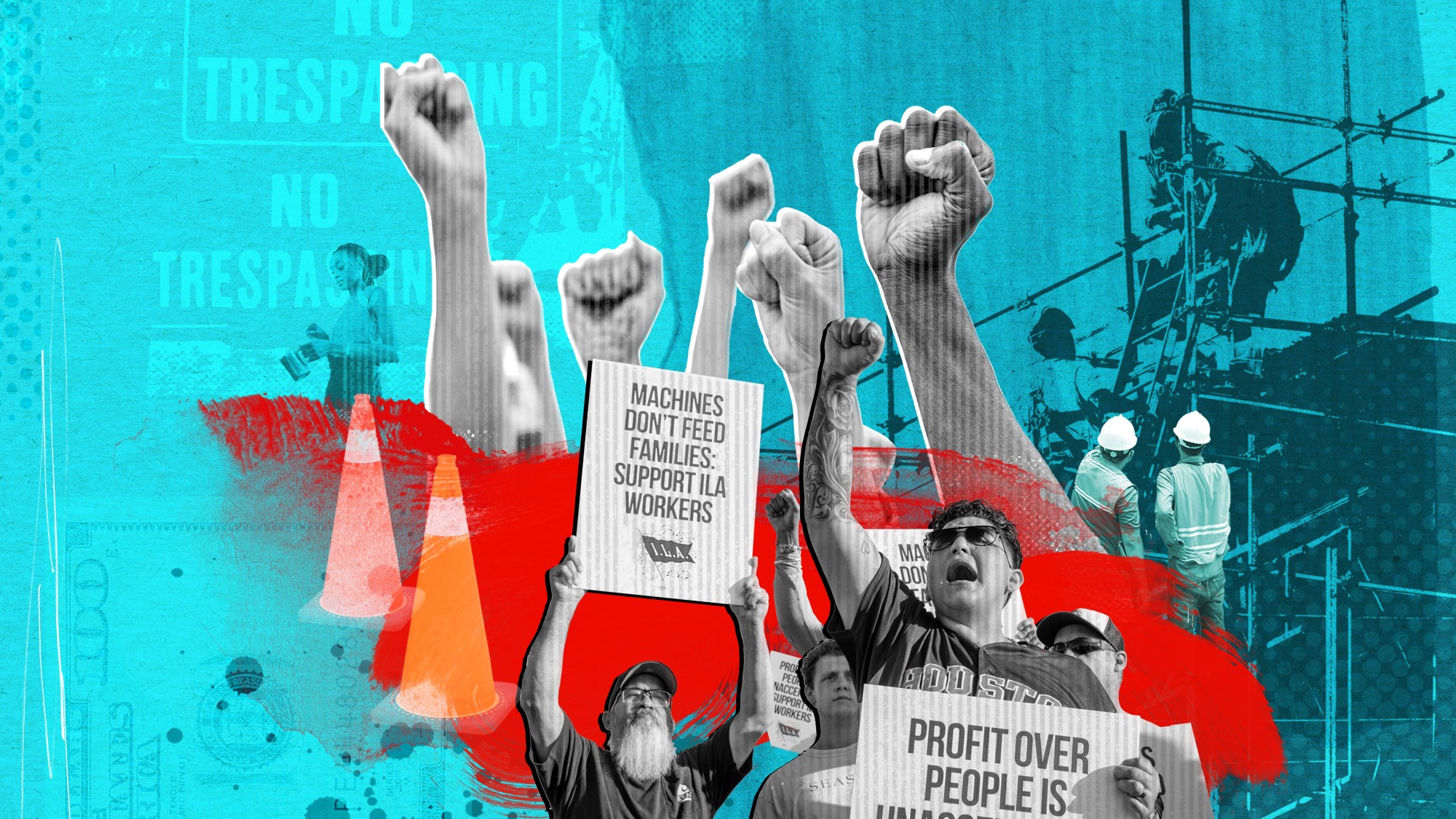 The pros and cons of labor unions
The pros and cons of labor unionsPros and Cons Companies throughout the country continue to push for unionization